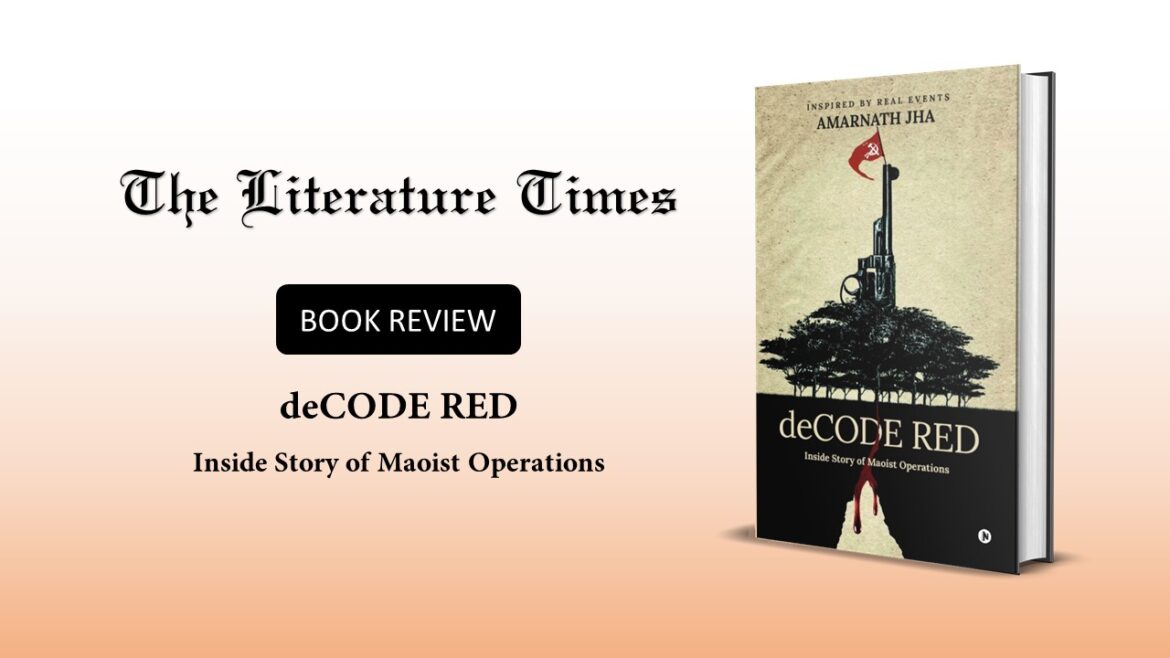If you have ever come across the word ‘terror’. Then, Decode Red will revive your feelings. You might have heard many stories regarding the Naxal attacks several times in newspapers or on TV. You would have gotten the news of killings of army persons in the dense forest of Jharkhand, Bihar, Chhattisgarh, or west Bengal. Jha presents a detailed overview of Naxals’ work process, the division of power, the significance of geology in their existence, and the role of political parties. The protagonist here is Harsh Tandon who wants to make a documentary on Naxals. Especially the incident of the Jehanabad jailbreak pushed him more to start this project. Being a journalist from Delhi, he experienced utmost thrill after visiting the underdeveloped areas of Bihar, Jharkhand, and Chhattisgarh. He was so passionate about making the movie and this made him even stay with Naxals in various unknown places where he would have never dared to go.
One has to appreciate the positive approach of the author here. Naxals aren’t supposed to threaten people every time. On the other hand, they help the underprivileged backward people who had been dominated by the upper caste and by the system for the ages. No one talks about how caste politics has helped many gangs in the establishment of their supremacy. Why did the oppressed people choose Naxals to get their rights? Isn’t it also the failure of government?
Jha impresses his readers through a minimalistic approach, he writes – “the Maoist are the people like anyone else, but they burdened their shoulder with firearms’’. Boys with hardly 16-17 ages were in the organization. At this age, no one develops such a strong ideology to survive the entire life. What made them so dedicated to continuing this hustle? What was the one thing which kept them motivated till their last breath? Jha appreciates unshakable dedication toward their ideology. On the other hand, he also criticizes Maoist for generalizing the killings of innocents just for the sake of an ideology.
I must say that no one could have written about Naxals so briefly with proper research. There is a scenario explained by the protagonist Harsh where he sees that a little girl comes to collect Mahua flower. The Maoists were sleeping on the floor. She collects the mahua flowers by uplifting the gun and leaves without any terror on her face. Naxals are supported by the local tribes and even influential people. But, how could an organization make for social reforms transformed into a politically influenced organization? The communist ideology runs through their veins. The ideology keeps them alive to strive and achieve their goals. Jha wants to show us the Naxals as ordinary human beings through the eyes of Harsh Tandon. And, he develops a profound sympathy for them. The community organization and the division of powers worked smoothly that it felt like an army organization, but we do not tend to believe them.
One cannot deny that this type of ideology takes shape in canteens, libraries, and discussions of universities. The involvement of professor Thalanthalaiya makes the plot more intriguing. He used to be Harsh’s hostel warden in JNU days. The narrative holds a firm grip on your mind. The most important question of the book should not be ‘did Harsh Tandon become successful in this journey or not?’ Instead it should be ‘why they do not show us the opposite side of the coin?’ Apart from the plot, the character depiction is also on point. There are numerous characters in the book. But, you will not get even a little bit confused. Because while narrating the characters, he has also mentioned the last plot where you could have heard about their roles. Apart from the communist ideology, the portrayal of the police as antagonists makes the story more gripping.
Amarnath Jha is a filmmaker, and theatre activist, and is specialized in film writing. Jha was born at Jhanjharpur, Mithila in Bihar. After completing his education in Bihar, he went to Delhi for further studies. Mithila’s rich art and culture made him more enthusiastic to work in this field. He carries the Maithili culture so proudly.
Professional background- Jha started his journey as a filmmaker in Mumbai. With time, his cinematic skills also got evolved. He also got opportunity to work with theatre legend Habib Tanvir and Usha Ganguly. Currently, he is busy writing several scripts with some renowned filmmakers in the Indian film industry, and a couple of new books are on his way.



